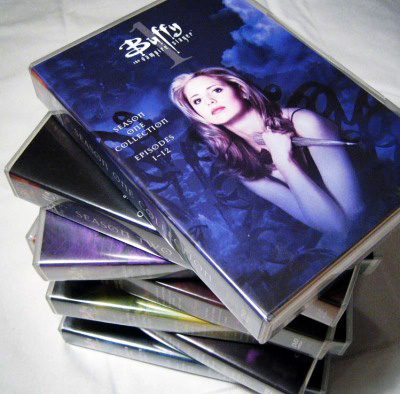 This book approaches the interrelation of popular representations of gender and violence and global politics by focusing on the narrative of television shows like Angel, Buffy the Vampire Slayer, and The West Wing. Ioanna Gouseti finds this is a theoretically sophisticated and enjoyable book that motivates its readers to think critically, even when they’re ‘only’ watching television.
This book approaches the interrelation of popular representations of gender and violence and global politics by focusing on the narrative of television shows like Angel, Buffy the Vampire Slayer, and The West Wing. Ioanna Gouseti finds this is a theoretically sophisticated and enjoyable book that motivates its readers to think critically, even when they’re ‘only’ watching television.
 Gender, Violence and Popular Culture: Telling Stories. Laura J. Shepherd. Routledge. July 2012.
Gender, Violence and Popular Culture: Telling Stories. Laura J. Shepherd. Routledge. July 2012.
Published as part of Routledge’s ‘Popular Culture and World Politics’ series, Gender, Violence and Popular Culture: Telling stories provides a critical approach to the popular representations of gender and violence through the lens of both ethics and politics. Laura J. Shepherd, Senior Lecturer in International Relations at the University of New South Wales, Australia, explores the ways in which a number of popular TV shows inform and are informed by people’s perceptions and experiences of the social world. Drawing on critical international relations as well as media and gender studies, the main aim of this volume is to illustrate the interplay between cultural discourse and global politics in everyday life.
This book, which is located in the disciplinary literature of international relations, proposes a politically engaged critique of the dominant or taken-for-granted conceptions of various socio-political orderings produced by gender and violence. The importance of such an investigation lies, according to the author, in the normative character of political discourse. On the one hand, it is argued that politics is not shaped merely at the public realm, but also in people’s daily lives via the stories they are told and those they tell. On the other hand, it is proposed that both gender and violence shape culturally intelligible subjects and socially acceptable modes of behaviour. Proceeding from these two core assumptions, the examined narrative representations of gender and violence are seen as being both constituted by and constitutive of the ways in which people make sense of wider social locations.

In particular, gender is conceptualized as an identity category and an analytic logic, foundational to our sense of the ‘self’ and the world. In a similar vein, violence is seen as an integral part of particular modes of being in the world. Importantly, the link between gender and violence, according to the author, is observed in their function as practices of power that shape ontologies and experiences (p. 5).
In the nine chapters of this robustly interdisciplinary volume, Shepherd’s analytical vehicle comprises seven popular television shows, namely Angel, Buffy the Vampire Slayer, Generation Kill, the West Wing, Oz, and The Corner. In these essays, the analytical interest lies in the representations of gendered bodies and their violent reproduction. In the analysis of Angel (p. 13-24) – the private detective vampire with a soul who tries to make reparations for his evil deeds – Shepherd concludes that the show’s central narrative of the appropriate political subject is developed on the basis of the conventional dualist boundaries between men and women.
In the case of Buffy the Vampire Slayer (p. 25-41), the attention is drawn on the representations of sexuality. Locating Buffy’s heterosexual relations close to female homosexuality, the latter is valorised along with reason over emotion. In the analysis of Generation Kill (p. 42-55) a mini-series about US marines’ experiences in the 2003 invasion of Iraq, the main focus is on the discourse of family and the gendered aspects of emotion and violence. Exploring the various performances of gender, ethics and political community, Shepherd concludes that the masculinisation of an ethic of care helps the soldiers to negotiate the legitimacy of war.
In the West Wing (p. 56-69) – the series depicting the liberal Bartlett presidency and his White House staff – it is shown how the gender logics of political strategy and legitimate violence flow directly from a mainstream and socially accepted liberal feminist ideology. Oz (p. 71-85) depicts inmate’s lives and relations at Oswald State Penitentiary. Shepherd’s analysis focuses on prison rape, conceptualized as the violent reproduction of sexuality and theorized as a technique of biopower. When analysing The Corner (p. 102-118), a series representing true stories from an inner-city neighbourhood in West Baltimore, USA, Shepherd is described as a social commentary and a political critique on parenting as well as on the centrality of hope to the sense of humanity.
In order to understand the form of these artefacts, Shepherd attends to what she calls their ‘aesthetic dimensions’. Drawing on the poststructuralist study of narrative, she treats the texts as a means of communicating numerous meanings, which shape and are shaped by the dominant conceptions of the social world. In this methodological context, the analysis is focused on the emotional and emotive qualities of the television shows rather than their objective representations. The key idea underpinning Shepherd’s rationale is that a narrative is neither inherently fictive nor factual, and that narrative representations can be found in artefacts, such as television shows, as well as in non-narrative texts, such as laws (p. 10). Importantly, Shepherd argues that blurring the boundaries between ‘factual’ knowledge and ‘fictive’ representation constitutes an analytical way to extent the scope of international relations scholarship, which is characterized by positivist, empiricist, and rationalist approaches.
The importance of a narrative discourse, according to the author, lies in the role of storytelling in shaping people’s personal and political claims, such as who we are, where we began, where we might end. In Shepherd’s words, ‘Stories provide order, metaphysical significance and certainty … Stories affect closure and offer stability …’, (p. 4). Suspending disbelief, narrative representations (re)produce cognitive frameworks about the world and our place in it, and as such they are central to social experience.
One limitation of an analysis of this nature is the multiple and alternative readings of the narratives. Indeed, recognizing this possibility, Shepherd clarifies that her work does not represent the definitive readings of the texts with which she engages. To the contrary, she remains open to the competitive interpretations of her case studies.
In sum, Gender, Violence and Popular Culture: Telling stories is a theoretically sophisticated book, and also accessibly written. It develops an epistemologically and methodologically fresh approach to International Relations scholarship by highlighting the interconnections between popular culture and global politics. Exploring aesthetic ethicopolitics, i.e. focusing on both ethics and politics, the author challenges the taken-for-granted conceptions of the social world(s), and demonstrates the importance of thinking critically, uncomfortably and empathetically, even when interpreting artefacts – also known as ‘watching television’.
————————————————————–
Ioanna Gouseti is a PhD student in the Department of Methodology at the London School of Economics. Her doctoral research focuses on fear of crime, and the role of risk construals and psychological distance in shaping public sentiments towards victimization. Her research interests include public reactions to crime, gender, and everyday emotions. Read more reviews by Ioanna.







